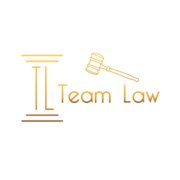Best Nonprofit & Charitable Organizations Lawyers in Surrey
Share your needs with us, get contacted by law firms.
Free. Takes 2 min.
List of the best lawyers in Surrey, Canada
About Nonprofit & Charitable Organizations Law in Surrey, Canada
Nonprofit and charitable organizations in Surrey, Canada, play a crucial role in addressing social, cultural, and environmental issues. These organizations operate under a specific set of legal frameworks that govern their formation, operation, and dissolution. The laws are designed to ensure transparency, accountability, and the proper use of resources for intended charitable purposes. Surrey, as part of British Columbia, follows the regulations set by both provincial and federal governments, which include registering with the Canada Revenue Agency (CRA) for charitable status and compliance with the British Columbia Societies Act.
Why You May Need a Lawyer
There are several reasons why individuals or groups might seek legal advice regarding nonprofit and charitable organizations in Surrey:
- Establishing a new nonprofit or charitable organization and ensuring compliance with legal requirements.
- Drafting and reviewing bylaws or governance policies to ensure they meet legal standards and best practices.
- Navigating issues related to tax-exempt status, including application and compliance with CRA regulations.
- Handling mergers, acquisitions, or the dissolution of an organization.
- Resolving disputes among board members or between different organizations.
- Managing employment laws as they apply to nonprofit workers, volunteers, and contractors.
Local Laws Overview
Several key aspects of local laws in Surrey, British Columbia, are particularly relevant to nonprofit and charitable organizations:
- British Columbia Societies Act: This act governs the establishment and operation of nonprofits in the province, offering guidelines for registration, structure, and governance.
- Charitable Status: To qualify for charitable status, organizations must comply with CRA requirements, which involve restrictions on activities and reporting obligations.
- Fundraising Regulations: Local laws oversee public solicitation and fundraising activities, requiring transparency and accountability in how funds are collected and used.
- Employment Law: Employment standards in British Columbia apply to nonprofits, requiring adherence to labor laws concerning wages, safety, and worker rights.
- Privacy Laws: The Personal Information Protection Act (PIPA) of British Columbia governs the handling of personal data by nonprofits.
Frequently Asked Questions
What is the process to register a nonprofit organization in Surrey?
You must submit an application under the British Columbia Societies Act, which includes reserving a name, outlining the purpose, and drafting bylaws.
How can a nonprofit achieve charitable status?
To obtain charitable status, an organization must apply to the Canada Revenue Agency and comply with the Income Tax Act to qualify for tax-exemption and issue donation receipts.
Are there tax obligations for charitable organizations?
Yes, even with tax-exempt status, organizations must file annual information returns with the CRA and ensure activities comply with regulations to maintain their status.
Can nonprofits pay their board members?
Generally, board members of charities in Canada volunteer their time; however, reasonable and well-documented reimbursements for expenses are permissible.
What are the legal requirements for fundraising activities?
Fundraising must comply with the CRA guidelines and provincial regulations to ensure transparency, accountability, and use of funds for declared purposes.
What governance policies are necessary for a nonprofit?
Organizations should establish clear bylaws, conflict of interest policies, meeting procedures, and financial accountability standards to comply with legal and best practice guidelines.
How are disputes resolved in a nonprofit organization?
Dispute resolution usually involves adherence to internal policies, mediation, and as a last resort, legal channels to protect the interests of the organization and its stakeholders.
Can a nonprofit organization be sued?
Yes, like any other legal entity, nonprofits can be subject to litigation, requiring them to have proper insurance coverage and legal guidance to mitigate risks.
What happens if a nonprofit needs to dissolve?
The dissolution process must comply with legal guidelines under the Societies Act, which includes settling debts and properly distributing any remaining assets.
Do privacy laws affect nonprofits in Surrey?
Yes, nonprofits must comply with the Personal Information Protection Act (PIPA), ensuring the proper handling and protection of personal information they collect.
Additional Resources
Here are some resources and organizations that could be useful:
- Canada Revenue Agency (CRA) - Charities Directorate: Provides guidance on charitable status and regulations.
- BC Societies Act: Key legislative document for nonprofits in Surrey.
- Volunteer BC: Offers resources for governance and management of volunteer programs.
- Imagine Canada: Supports charities with policy advice, accreditation programs, and tools for governance.
Next Steps
If you need legal assistance with nonprofit and charitable organizations in Surrey, consider the following steps:
- Identify your specific legal needs, be it forming a new entity, compliance, or disputes.
- Consult with a lawyer who specializes in nonprofit law; look for those with experience and familiarity with local regulations.
- Prepare any necessary documentation you have, such as mission statements, governance documents, and financial reports, before meeting with a legal professional.
- Discuss potential costs, timelines, and legal strategies during your consultation.
- Take action based on the advice received to establish compliance and effectiveness within your organization.
Lawzana helps you find the best lawyers and law firms in Surrey through a curated and pre-screened list of qualified legal professionals. Our platform offers rankings and detailed profiles of attorneys and law firms, allowing you to compare based on practice areas, including Nonprofit & Charitable Organizations, experience, and client feedback.
Each profile includes a description of the firm's areas of practice, client reviews, team members and partners, year of establishment, spoken languages, office locations, contact information, social media presence, and any published articles or resources. Most firms on our platform speak English and are experienced in both local and international legal matters.
Get a quote from top-rated law firms in Surrey, Canada — quickly, securely, and without unnecessary hassle.
Disclaimer:
The information provided on this page is for general informational purposes only and does not constitute legal advice. While we strive to ensure the accuracy and relevance of the content, legal information may change over time, and interpretations of the law can vary. You should always consult with a qualified legal professional for advice specific to your situation.
We disclaim all liability for actions taken or not taken based on the content of this page. If you believe any information is incorrect or outdated, please contact us, and we will review and update it where appropriate.










